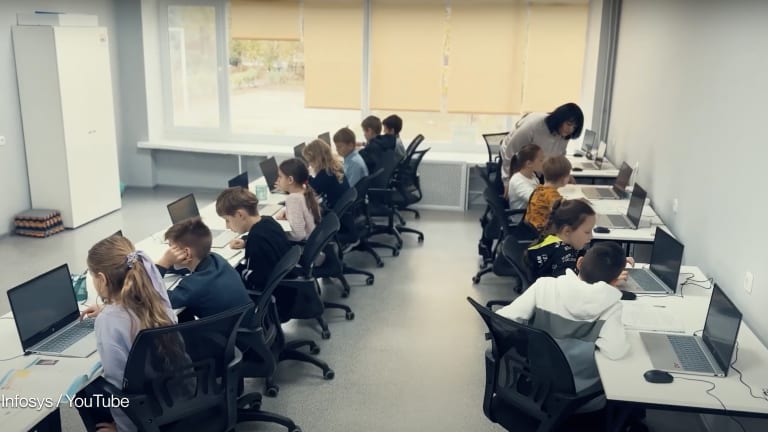
The war in Ukraine has rightly attracted public outrage all over the world. Both public and private donations to Ukraine have shot up in response to the resulting humanitarian crisis, leaving support for other humanitarian causes trailing behind. Alarmingly, development assistance is being diverted from vulnerable populations in low-income countries to channel funds into Ukraine. Japan, South Korea, and Singapore have taken the unprecedented step of enacting sanctions against Russia, when they have thus far been unwilling to take similar action against the Myanmar junta in a crisis much closer to home.
As I discuss below, charitable giving to Ukraine has been dramatically higher than other recent crises, which raises several questions. Is such a stark difference in support justified? Is the humanitarian need in Ukraine indeed greater than other crisis-affected countries? Are humanitarian agencies better able to utilize funds and deliver support in Ukraine than anywhere else? Or is there a double standard when it comes to global charity?
Charity to Ukraine vs. other recent crises
Analysis of Google searches reveals that charity by English-speaking individuals to Ukraine in the aftermath of Russia’s recent invasion has outright dwarfed charity to other major humanitarian crises in the past three years. This is especially important because Anglophone countries account for the highest levels of charitable giving by individuals (measured as a percentage of GDP) globally.

Private sector donations appear to tell a similar story. According to the U.N. Office for the Coordination of Humanitarian Affairs’s Ukraine Private Sector Donations Tracker, private sector donations (paid or pledged) to support the humanitarian response in Ukraine have reached dizzying heights, totalling $1.6 billion as of Oct. 4. Although a comparable dataset is not readily available for private sector commitments to other crisis-affected countries, data from OCHA’s Financial Tracking Service, which relies on a narrower set of reported figures, suggests that private sector donations to Ukraine have considerably exceeded those received elsewhere.
If every human life is fundamentally equal in worth and therefore equally worth saving, then allowing biases to influence the destinations of charitable donations is a problem.
—Would donations be more impactful elsewhere?
It is simply not the case that the scale of humanitarian need in Ukraine is objectively greater than in other crisis-affected countries. The countries currently facing the most acute risk of starvation are Afghanistan, Ethiopia, Nigeria, Somalia, South Sudan, and Yemen. Looking at humanitarian needs more broadly, UNOCHA places Afghanistan, the Democratic Republic of Congo, Ethiopia, and Yemen above Ukraine in terms of the sheer number of people in need.
It is also not the case that humanitarian agencies are in an especially strong position to access vulnerable populations in Ukraine compared with other crisis-affected countries. ACAPS, an independent organization specializing in humanitarian analysis, gives Ukraine a score of 5/5 in its Humanitarian Access Index, signifying extreme access constraints for humanitarian responders. By comparison, DRC, Ethiopia, and Afghanistan have less constraining conditions for humanitarian access. This implies that, in many cases, people’s donations may be more impactful elsewhere.
Reasons for the double standard
We can certainly speculate on the reasons for this apparent double standard in charitable giving to Ukraine. Plenty of research shows that acts of charity are subject to both conscious and unconscious biases. Indeed, several analyses have emerged since the war in Ukraine, pointing out the various biases seemingly at play. Notably, the way in which Western media has spotlighted the Ukraine crisis at the expense of other crises appears to reflect deep-seated societal biases around race and the prevailing global order.
The notion of psychological distance, a well-established cognitive bias in charitable giving, might explain why Ukraine has attracted more support than other recent crises from affluent, mostly Western societies. This notion refers to the extent to which potential givers feel a sense of closeness or, conversely, distance toward the recipients of their charity — Ethiopians suffering from acute malnutrition being much more psychologically distant for most Westerners than a middle-class family in Ukraine. Psychological distance not only encompasses racial and religious biases but also accounts for temporal distance, explaining why we tend to feel more sympathy for people alive today than for those who lived before us or are yet to be born.
More equitable charity
If every human life is fundamentally equal in worth and therefore equally worth saving, then allowing biases to influence the destinations of charitable donations is a problem. More precisely, it is a problem of resource misallocation.
We don’t need people to be more generous in order to save more lives; we just need them to allocate their money according to need, rather than bias. Telling individuals where they should send their own money is obviously problematic, but charities can still encourage potential givers to improve the allocation of their money.
For example, charities could provide basic, up-to-date information on the countries with the greatest humanitarian need and their levels of access for humanitarian responders as a standard disclaimer to accompany all destination-specific funding drives — a gentle nudge for potential givers to consider needy populations who may not be receiving the media attention they deserve.
The global generosity shown toward Ukrainians is laudable, but the fact that other crisis-affected populations — many of which are more severely in need and more accessible to humanitarian responders — have not had nearly the same success in eliciting empathy from high-income countries has very real consequences for the level of human suffering in the world.
Biased charitable giving isn’t just a problem for reasons of fairness — it is a problem because more lives could be saved otherwise.
Search for articles
Most Read
- 1
- 2
- 3
- 4
- 5








